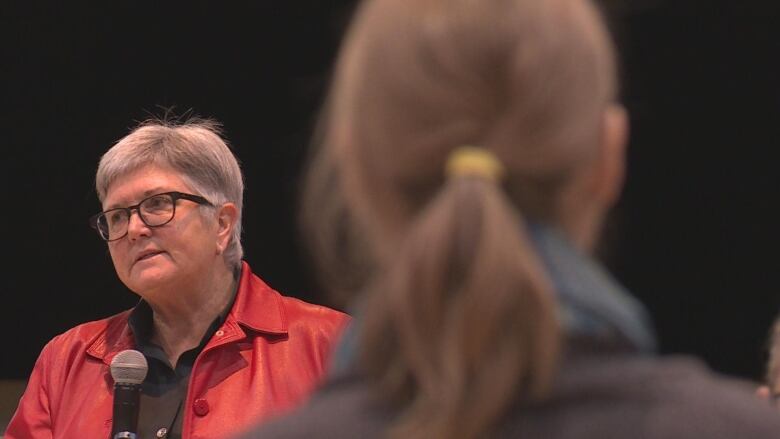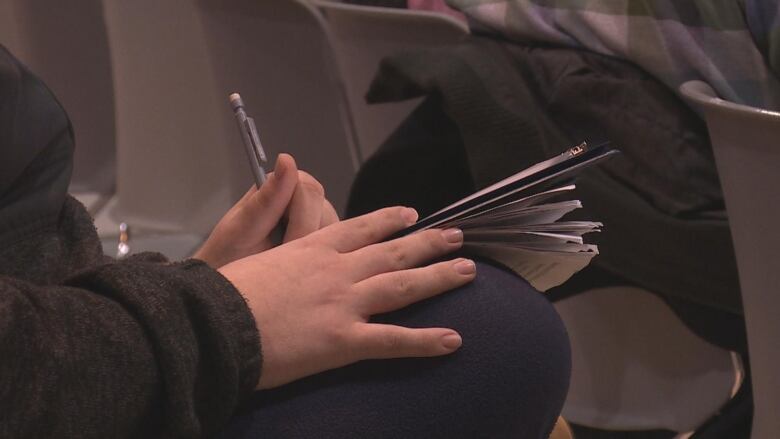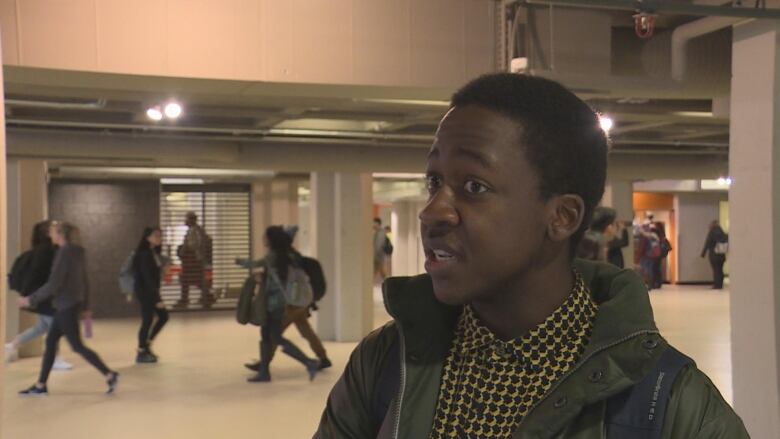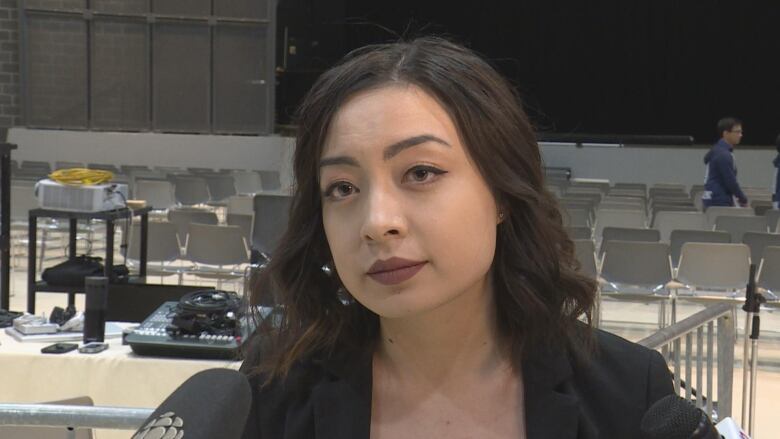'Everyone will participate:' U of C proposes tuition hikes to cover grant cut
Students say increases will hurt their ability to finish degrees and balance expenses

The University of Calgary is looking at increasing tuition across the board to make up for a mid-year funding cut by the provincial government.
The government's latest budget mandated a five per cent cut to post-secondary operating grants distributed to each institution based on the institution's ability to sustain the reductions.
For the University of Calgary, that translated to a $32.9 million reduction for the institution within the year.

"One of the philosophies we have at the university is that everyone will participate in some form or fashion and contributing to this," university provost Dru Marshall said. "We anticipate another budget cut, we've been told there will be another budget cut over the next three years."
With the previous government's policy, Marshall told students they were expecting to raise tuition about 2per cent.
If the proposed change is approved by the university's board of governors in January, tuition would rise by:
- Five per cent for current undergraduate students, both domestic and international.
- Seven per cent for new domestic undergraduate students.
- Ten per cent for new international undergraduate students.
New domestic and international engineering students could be looking at a 10 per cent increase.
Marshall told students this government has indicated students should be paying a higher proportion of education costs.
"Frankly, when you have rates of tuition that have been flatlined for five or six years, it's not surprising that you get large increases," Marshall said.

Lloyd Bam is concerned the school's administration is downloading costs on students, instead of looking at employees with high salaries.
"I am scared as any student would be," Bam said. "I know a fair amount of students who are struggling with homelessness, food bank shortages, they can't afford to get the quality education that they want."
During the meeting, one student told Marshall the increased cost of education meant some would have to walk away from degrees.
Jessica Revington is the University of Calgary Students' Union President. She said the proposed numbers are higher than expected.

"This is not over," she said. "It's just the beginning of a very long constitutive process that students will need to be involved in when it comes to decisions about the tuition that they pay."
A number of students have said they will look to fight any tuition increases. Frank Finley says he is in the midst of a campaign.
"If 50 or so students showed up to the January board meeting, crammed into the boardroom and tried to ask the difficult questions, I think they have a real ability to actually influence the outcomes that we're going to see," he said.
Finley hopes the board will vote down tuition increases and send a message to the provincial government.
Marshall says tuition changes will come into effect in May 2020.
Last week, the U of C announced it would eliminate 100 jobs, and lay off 150 employees to make up for the mid-year cut.
It also proposed similar tuition increases for graduate students.
- Budget 2019: Alberta's post-secondary budget reduced, tuition freeze removed
- University of Calgary to slash 250 jobs after provincial funding cuts
The town hall was the school's third event to address what's needed across campus at all levels to get in line with the funding reduction.












_(720p).jpg)


 OFFICIAL HD MUSIC VIDEO.jpg)
.jpg)



























































































